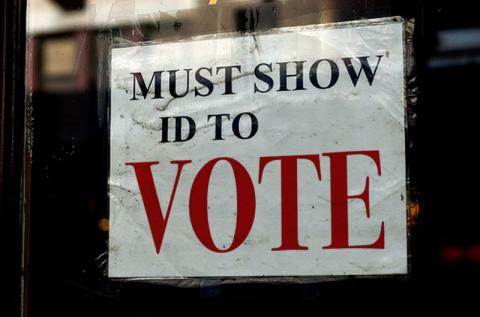There has been a lot buzz in Washington lately over the new leaks coming out of the Trump administration, as well as the ongoing investigation into possible collusion between the Trump campaign and Russia. However, a recent story that has gone largely unreported could potentially have rather large implications concerning the election results this past November, more so than Russian interferences.
Earlier this month, Ari Berman wrote an article for The Nation in which he reported on a new study from Priorities USA. The study found that voter ID laws in Wisconsin led to the suppression of 200,000 votes in the 2016 presidential election. The study claims:
"While states with no change to voter identification laws witnessed an average increased turnout of +1.3% from 2012 to 2016, Wisconsin’s turnout (where voter ID laws changed to strict) dropped by -3.3%. If turnout had instead increased by the national no-change average, we estimate that over 200,000 more voters would have voted in Wisconsin in 2016."
The study goes on to say that the Clinton campaign was hit especially hard by the suppressed vote which caused a reduction in turnout that disproportionally affected minority communities. President Trump ended up winning the badger state by a slim margin of 22,748 votes. While some argue that the study is overstated and cast doubts on its validity, it nonetheless raises serious questions about whether or not voter suppression was a factor in the election. Wisconsin was a crucial state in delivering the electoral victory for Trump.
The study also compared turnout trends in Wisconsin and turnout trends in Minnesota, which has very similar demographics to Wisconsin, but no voter ID laws in place. The study reveals that African-American turnout dropped at "significantly higher levels" in Wisconsin than in Minnesota.
Last week, Berman discussed voter suppression on NPR, during which he talked specifically about the situation in Wisconsin.
This news comes within the same month that the US Supreme Court declined to hear a case concerning voter ID in North Carolina, thus upholding the unanimous decision by the Fourth Circuit Court of Appeals that the state's voter ID law was unconstitutional. According to the Washington Post, the court ruled that North Carolina, "selectively chose voter identification requirements, reduced the number of early voting days and changed registration procedures in ways meant to harm African Americans."
Though there have been some questions raised regarding the accuracy of this study, voter ID laws have certainly been under much scrutiny of late. With this new study and the situation in North Carolina, it appears voter ID laws potentially played significant roles in the election and will be further debated down the road.
